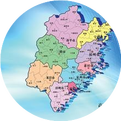The Ultimate Explanation of Modal Verb: Can
Education | Reading | Life | Growth Written by Chen Deyong In the previous section, we discussed the 7 groups of modal verbs that are essential for middle school English. In this article, we will delve deeper into the usage of these modal verbs.Today, let’s first take a look at the usage of the most … Read more









